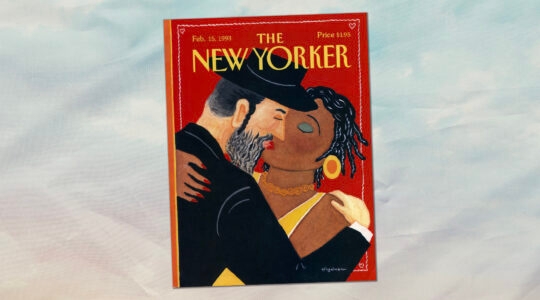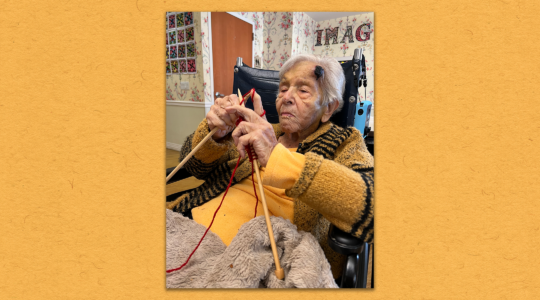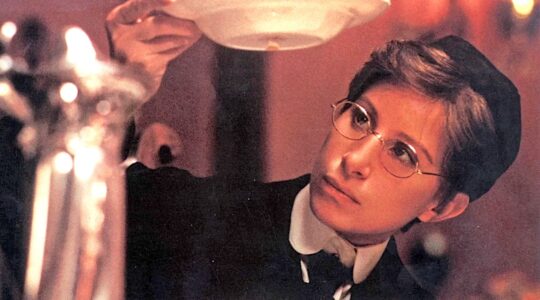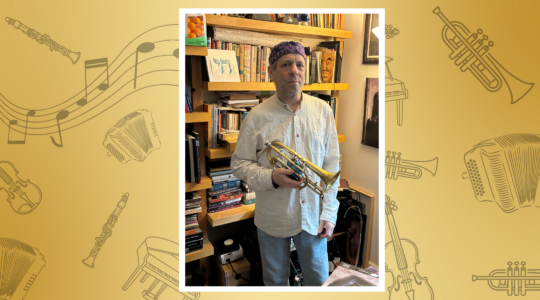Update, Sept. 30, 11:25 p.m.: According to The Journal News, amid claims of voter confusion and fraud, a judge has ordered the Rockland County Board of Elections to impound all referendum vote ballots. No official results will be released before Oct. 10.
===
As voters in embattled Ramapo went to the polls this week, at stake was the power of the growing population of charedi Jews in the Rockland County suburb. Tuesday’s referendum, led by a group of activists called Preserve Rockland, was aimed at lessening charedi political power in a town that has fought a years-long battle over Orthodox control of the public schools.
Whatever the outcome of the vote, which this time around is focused on the makeup of the town’s governing body rather than the schools, the power struggle will no doubt to continue.
The election follows weeks of campaigning on both sides in the suburb 28 miles north of New York City, including dueling mailings — both sent purportedly by charedi groups — on both sides of the issue.
Tuesday’s referendum proposed dividing the town of 126,000 into six regions, called “wards,” with each electing their own councilmember. Currently the board is made up of four at-large councilmembers and a town supervisor, all of whom are chosen by the entire electorate.
The town of Ramapo is made up of nearly two-dozen hamlets and villages — including such charedi enclaves as Monsey, Kaser and New Square. Proponents of the referendum say that although charedi voters only make up roughly 30 percent of the electorate, their tendency to vote as a bloc gives them a disproportionate influence over the council.
Preserve Rockland’s Mike Parietti, who ran unsuccessfully for town supervisor in the last election, is one of a group of activists who have been trying to get the referendum on the ballot for more than a decade.
“We feel that the at-large system that we have now doesn’t allow for all the communities of interest have their fair share” of political power, he said.
“We have a growing population of ultra-Orthodox and chasidic community members, and to their credit they’re very good voters,” he added. “It’s gives them a great deal of political clout, and that’s fine,” he said, but the current system means that every council member is dependent on support from the charedi community.
Most charedi voters were expected to vote against the measure: 24 of the area’s most prominent rabbis came out against it, as did the charedi umbrella group Agudath Israel of America, which called the referendum a case of “classic minority vote dilution,” aimed at weakening “the political influence of Orthodox Jews” by concentrating most of them into just two wards.
But insiders said they expected a minority of charedi voters to vote yes, either because they believe the ward system will help curb overdevelopment in such dense areas as Monsey, or because they believe a check on Orthodox political power will help heal the growing rift between charedi and non-charedi residents.
On Saturday, Jewish residents received a mailing from a group calling itself “Vadd [sic] Lihatzulas Monsey” (Committee to Save Monsey) urging a yes vote in order to “Bring back peace and concord to our beautiful town; Stop the rise and danger of out-of-hand anti-Semitism; Gain personal [c]ouncilmembers for your immediate area; give your neighbors a feeling of equal representation; and Enjoy a life free of fears of bodily and/or monetary harm.”
“Will you pray with a clear conscious this Yom Kippur?” the mailing asks.
It is not clear who put out the six-page pamphlet: no one contacted on either side knew who was behind the mailing or had heard of the committee or of “Mr. J Goldenberg of CNP logistics” who is thanked in the pamphlet for his sponsorship.
Some observers question the authenticity of the pamphlet, saying its wording seemed “over the top,” and almost a caricature. A page questioning the motives of the rabbis who came out against the referendum includes an illustration of a charedi developer with money-stuffed pockets holding “Vote No” sign as he stands before a flock of sheep.
But no matter who is behind the mailing, insiders say referendum is a sign not just of the rift between charedi and non-charedi but also of a growing divide within the community.
“The community is absolutely split on this,” one insider said, noting an increasing frustration among charedi residents about the seemingly unchecked overdevelopment. “A lot of people understand that what’s going on is untenable.”
But the pros and cons of the ward system go well beyond the question of charedi political influence.
If the referendum passes, it would be a sharp break from the norm. The vast majority of New York State’s 932 towns elect at-large councilmembers — only 11 use the ward system according to the New York State’s Office of General Counsel.
There are also objections to the referendum on the financial front, with detractors arguing that adding more councilmembers will cost the taxpayers two additional salaries, and that passage of the referendum will lead to years of litigation at taxpayer expense.
Vote No proponents also say it’s crazy to vote for the change without knowing how the Rockland County Board of Elections will divide the town into wards.
Proponents counter that the board is required to follow the Voting Rights Act, which mandates that “communities of interest” be kept in the same ward. They also point out that the ward system is what is used for federal and state governance, as well as in most large cities, where it seems to work well. Several area politicians as well as the Ramapo Republican Committee have come out in favor of the initiative, saying that it will give residents from across Ramapo a greater voice in town governance.
"A ward system of government for Ramapo would provide all areas of Ramapo with at least some government representation in our Town," Rockland County Legislator Joe Meyers said in a statement posted on the Preserve Ramapo website. "While it is not a cure-all, it is critically important that all citizens in Ramapo feel that they have some representation in Town government.
Spring Valley Trustee Emilia White, who is Haitian, wrote a letter to The Journal News supporting the ward system, arguing that although Ramapo has had a black councilmember for decades, that doesn't mean that person has the support of black voters or necessarily represents their interests.
White argued that in 2011, when she ran against longtime Ramapo Councilwoman Brendel Charles, who is also black, Charles lost in the districts with the majority of black and Latino voters.
“She did not win in election districts where people of color live,” White wrote. “In many of those districts, I beat her by more than two to one, even in her own home district. It was in Kaser and New Square that voters favored Ms. Charles overwhelmingly; without these two villages, she would have lost townwide. Had the ward system been in place, the voices of voters of color would not have been overridden by the Hasidic villages."
Ryan Karben, a Rockland County-based public affairs consultant and former assemblyman, who is strongly against the referendum, argues that changing to a ward system would not only “further polarize and paralyze” town governance, but would also not lessen charedi political power because more affluent charedi families are increasingly moving away from the Monsey area to less dense villages, meaning they would be voting in other wards.
“If the referendum passes, within one election system you would have a chasidic majority on the board again,” he said.
He further argued that when the ward system was implemented for the Rockland County legislature where he was serving as a legislator at the time legislators began voting only in the interests of their constituents, instead of for the good of the entire town. “Everything became a trade-off and a megadeal,” he said.
But those supporting the referendum say that those kinds of deals build bridges.
“It’s coalition building,” said activist Steve White, who is married to Emilia White. “If you have real representatives [not dependent on the charedi vote], they will be forced to work with each other.”
Arguments aside, with the charedi get-out-the-vote effort in full swing, it’s unlikely the referendum will pass. But the fact that so many people have joined the “Vote Yes” coalition without knowing what the ward boundaries would be shows just how embattled the Town of Ramapo has become, commentators say.
“That people would go in and vote blind for a system where that [the ward boundaries] remains an absolute mystery," said Karben, “that just speaks to the bitterness in the community.”
==
The New York Jewish Week brings you the stories behind the headlines, keeping you connected to Jewish life in New York. Help sustain the reporting you trust by donating today.




